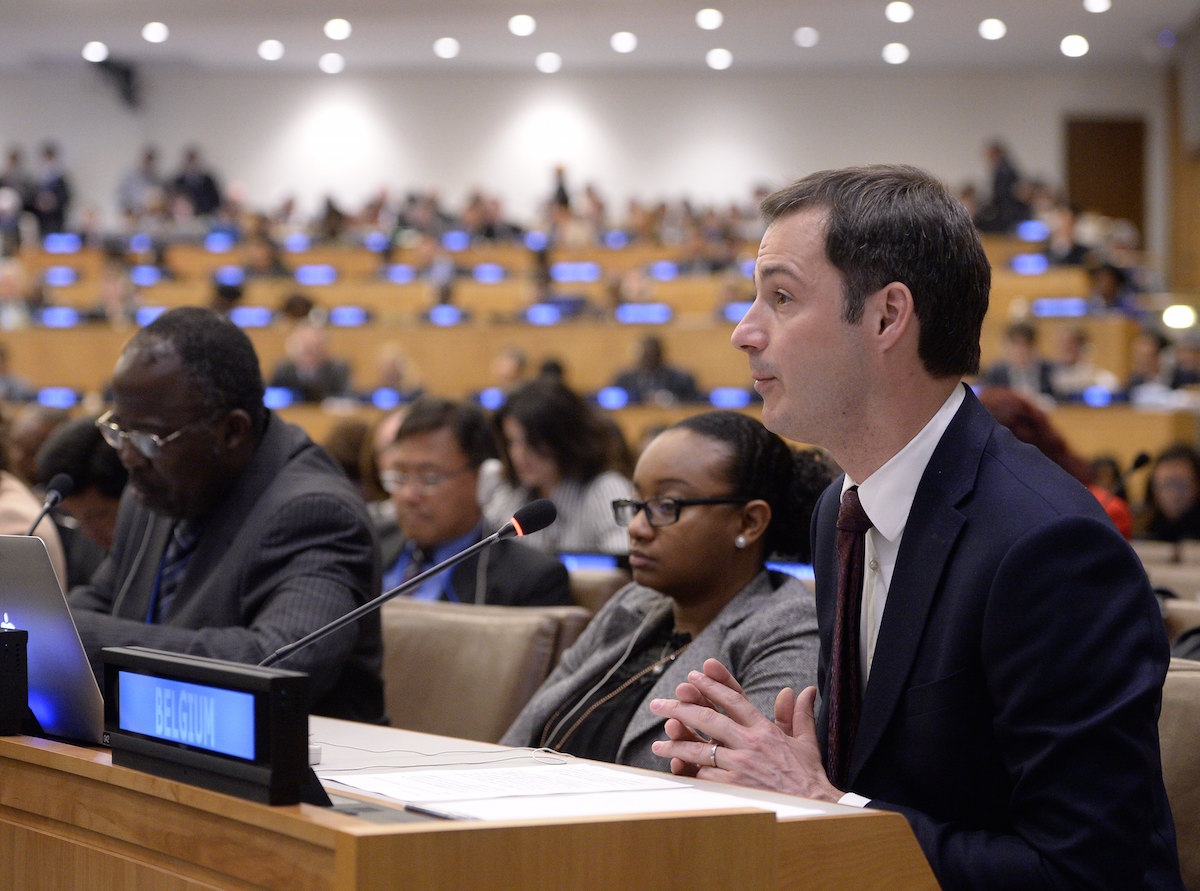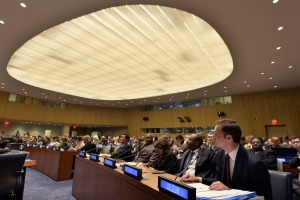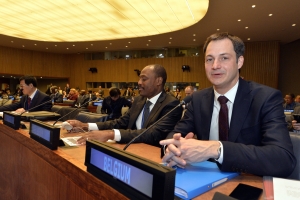Intervention “Financing for Development” Drafting session for the Addis Ababa Outcome Document (New York)

Dear Chair,
Distinguished Representatives,
Ladies and Gentlemen,
Let me at the outset stress the importance of this session. As Secretary-General Ban indicated the Addis Ababa Summit must agree on an ambitious course for sustainable development financing beyond 2015. In doing so, the Summit will become a key milestone in the global paradigm shift the Secretary-General has rightly called upon. This is the challenge we face over the coming months.
Let me also thank Ambassador Geir Pederson of Norway and Ambassador George Talbot of Guyana for their continuous efforts as co-facilitators.
Ladies and Gentlemen,
Belgium has five priorities for the Financing for Development Agenda. First, the principle of universality. The new global agenda will affect us all. This requires the mobilization of all actors on all levels, including local communities and subnational entities. In Belgium as in other countries, these entities are responsible for the implementation of large parts of this agenda.
Secondly, digitalization. Science, technology and innovation are important enablers for development. Digital is a crucial driver for decent work, growth and well-being, with a profound impact across all sectors of society. The Internet and digital technologies boost economic, social and political development. They vastly expand freedom of speech and empower human rights. We have fought for these rights for decades, for centuries even. Let us remain committed to protecting security and privacy in the digital age and avoid large-scale intrusions such as mass surveillance.
Thirdly, the need for domestic resource mobilization. We all know, aid alone does not lift countries out of poverty. Foreign investment, international trade and remittances are equally important for financing development. But for countries to sustainably reduce poverty and tackle inequality, a strong economy and efficient tax collection is crucial. This includes fighting illicit flows and properly managing natural resources.
Fourthly, Belgium remains a strong supporter of effective development cooperation. We should avoid narrowing down the financing debate to ODA. A new, ambitious development agenda must go beyond traditional channels of cooperation. The global partnership we wish to design should promote the effective use of all resources, including domestic ones, international public finance, private sector finance and innovative financing.
After all, the Monterrey consensus is much broader than a single ODA-target. It is about effective use of resources by all development partners and actors, including those who engage in South-South cooperation.
And finally, we must focus on these regions where the needs are most pressing. The OECD reported recently, ODA towards the Least Developed Countries (LDCs) fell by 16% last year. ODA towards sub-Sahara Africa decreased by 5%. These countries will remain aid-dependent for many years to come. That is why Belgium calls upon the international community to focus its development efforts first and foremost on LDCs and fragile states. I would like to thank you for your attention.


